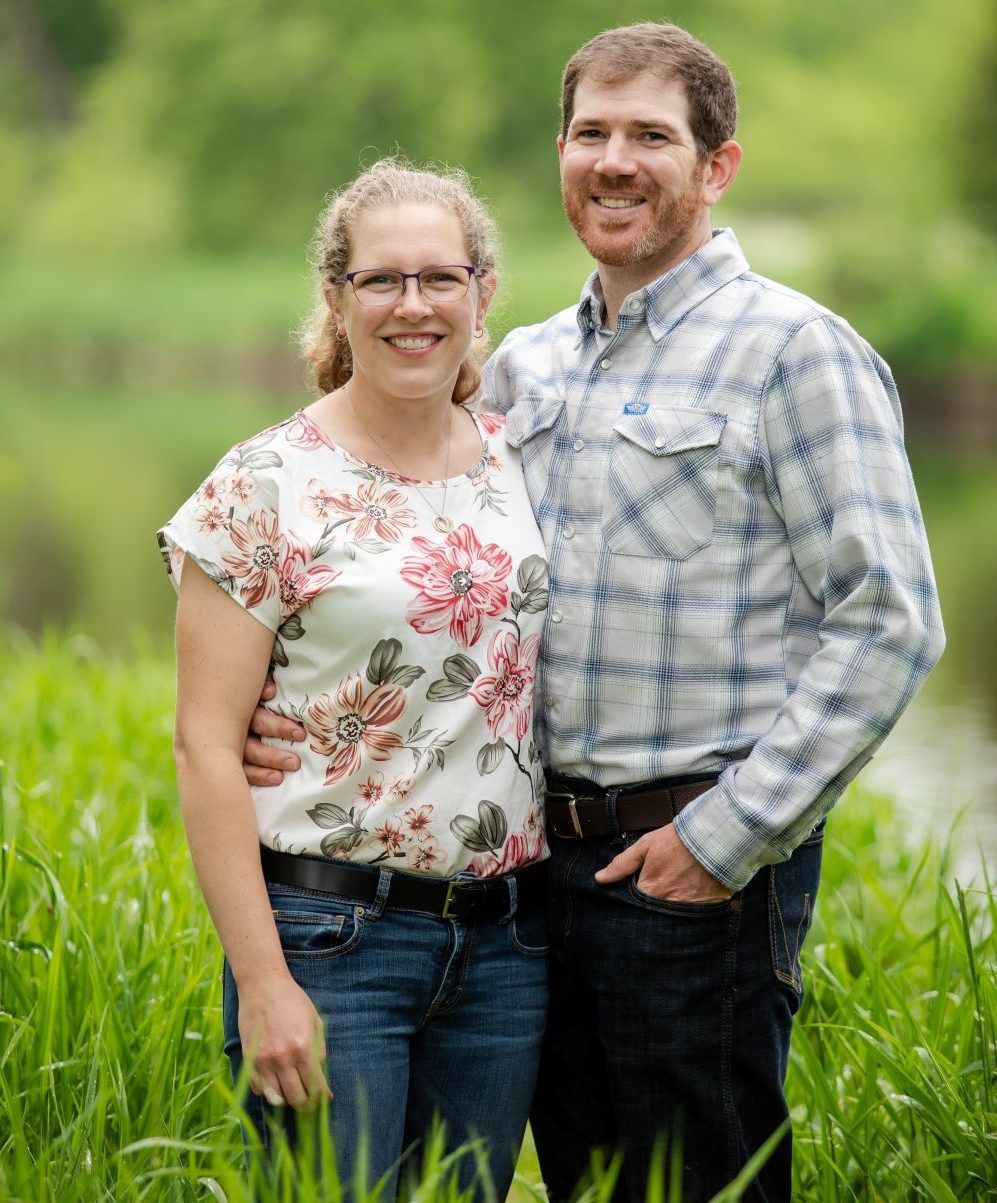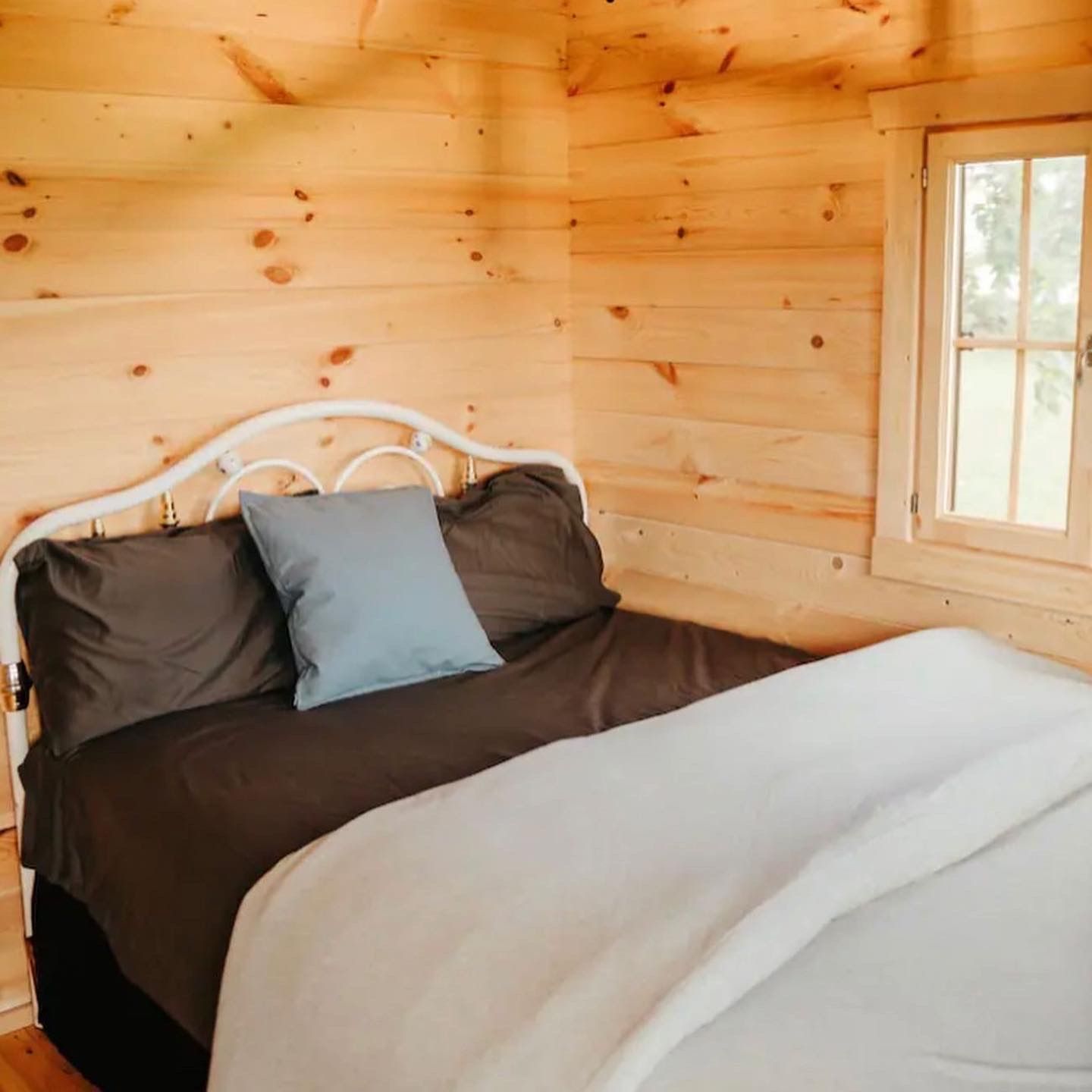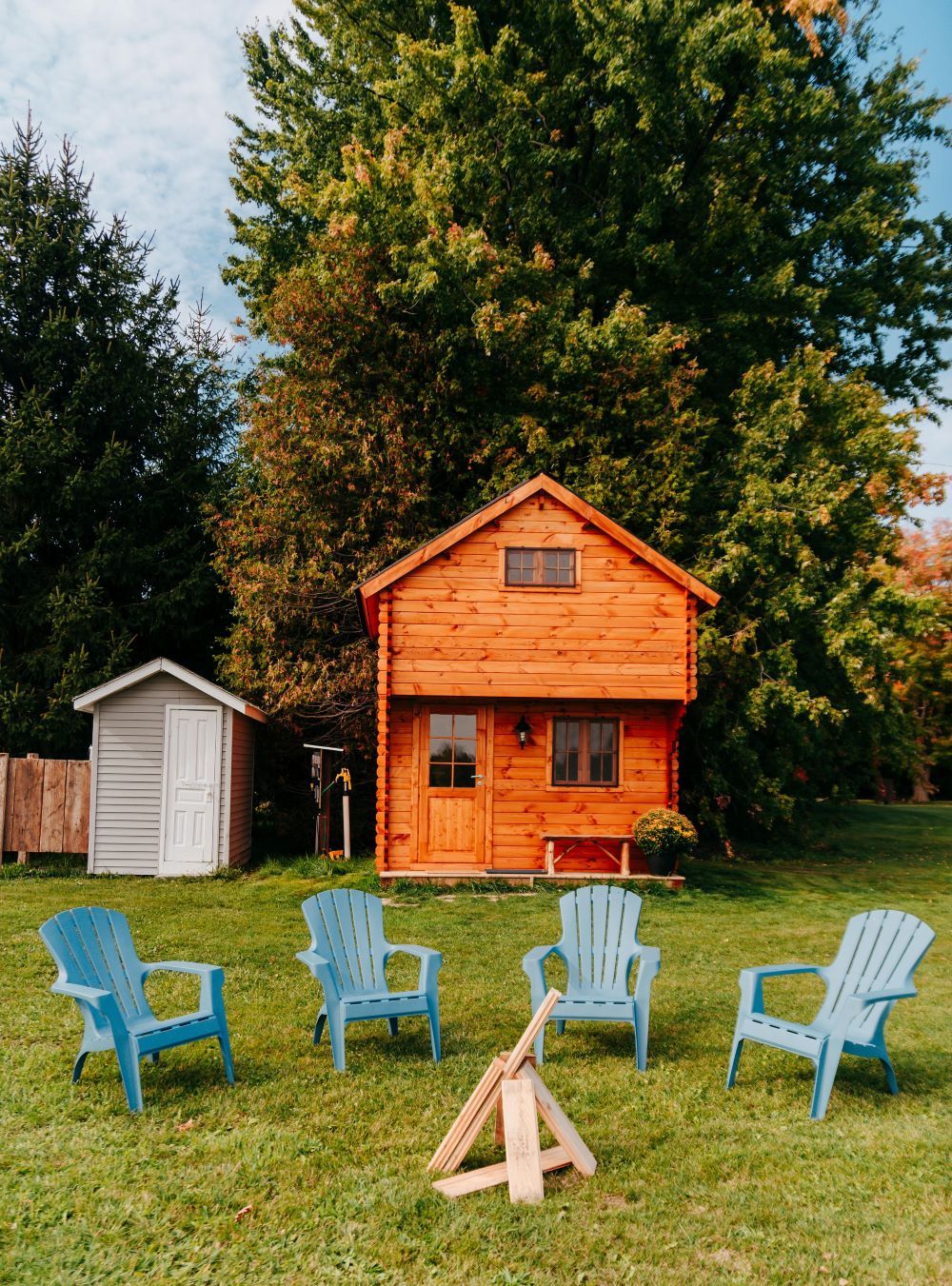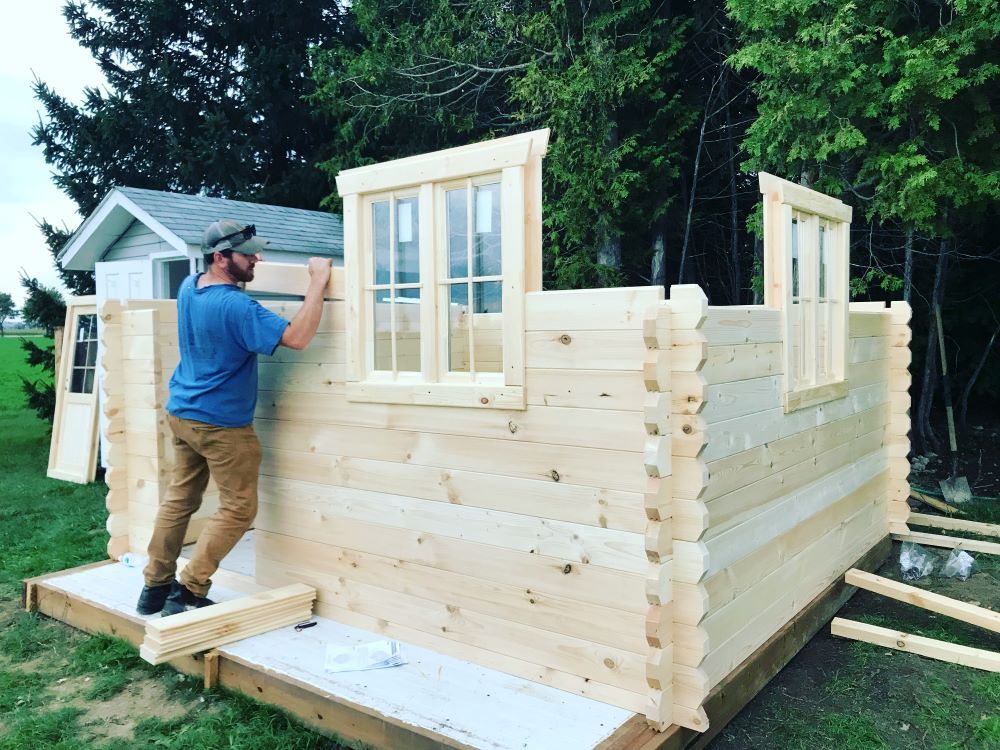Local short-term rentals and overnight accommodation could end up being subject to a Municipal Accommodation Tax (MAT). “I think this is an excellent project. Long overdue and much needed,” Kincardine Coun. Rory Cavanagh commented during council’s May 28 meeting. “Other places have beaten us to the punch for it.” During the meeting, a presentation was […]
The Bluebird Bunkie in Alma is a unique and cozy spot for guests looking to flee the city and embrace the countryside.
The short-term rental, owned and operated by Laura Ferrier, along with her husband James Ferrier, was built in 2021 and officially opened the fall of that year.
“We built the bunkie after my second maternity leave,” Laura said while explaining that both her and her husband have routinely worked off-farm while running a cash crop operation.
The Ferriers used to be the only growers of lentils in the province but shortly after the COVID-19 pandemic, the couple decided to stop production.

Laura and James Ferrier (Submitted by Laura Ferrier)
“COVID changed a lot of things,” Laura said.
The bunkie, along with a roadside stand that sells 30 different varieties of pumpkins, would fill the gap left by the lentils and align with their young family’s lifestyle.
“We weren’t travelling far with the kids and we figured we could also use the space for ourselves,” Laura said.
As step one, the Ferriers purchased a do-it-yourself bunkie kit.
“It’s kind of like Ikea. You buy the kit and follow the instructions,” Laura said.
The bunkie took two days to assemble and once it was complete there was space for two guests in one bedroom with a queen-sized bed.

The bunkie has space for two guests and includes a queen size bed, kettle, mini-fridge, and indoor electric fireplace. (Submitted by Laura Ferrier)
According to the description, the Bluebird Bunkie is fully powered, providing the comfort of lighting, device charging, heating and air conditioning.
A separate bathhouse features a composting toilet, vanity and outdoor shower
The overall goal was to create a hotel-like experience for guests and because of that, there are no chores associated with the stay.
When guests leave, all they have to do is turn off the AC and lights and walk out the door.
Laura posted the bunkie on Airbnb, VRBO and Hipcamp. The first few months in business, the bunkie had consistent occupancy from Thanksgiving to New Year’s Eve.
“It wasn’t every weekend but it was solid” Laura said.
The core group of guests come from the Greater Toronto Area, but there have also been visitors from the U.S. and Europe.
Upon every visit, Laura welcomes the guests, checks them in and leaves them to enjoy their stay.
Visits to the bunkie start ramping up between May and July on an annual basis. While the busiest month of the year is August, September and October are busy too.

Outdoor amenities include a fire pit and barbeque. (Submitted by Laura Ferrier)
Guests have come to stay as early as April and as late as December, but weather plays a key factor in the bookings.
“We don’t want to be dealing with people in storms,” Laura said.
Like with any new business, there have been many lessons learned overtime. For starters, Laura said they put the wrong type of roof on the bunkie.
“We followed the instructions but afterwards we thought we should have put a steel or asphalt roof on instead.”
Learning that it’s impossible to make every guest happy was another big lesson, as was realizing that some guests are going to be more challenging than others.
“There have been some bumps, but overall the people have been spectacular.”
Laura has thought about launching an independent website to promote and book the bunkie but after three years of operations, Airbnb is still her preferred platform.
The online marketplace for short-and-long-term homestays allows hosts to know who’s coming (to a point) because other hosts have reviewed them.
“I get to approve guests before they book,” Laura said. “If someone has horrible reviews, I can decline their request.”
And if the guest is a first time renter, hosts can talk to them and get a sense of who they are before booking.
Looking towards the future, the Ferriers had considered building a second bunkie, but ultimately decided not to.

James Ferrier constructing the bunkie from a do-it-yourself bunkie kit. (Submitted by Laura Ferrier)
The volume of visitors has slowed down this year as travel habits have changed since COVID. Meanwhile, the number of short-term rentals in and around Alma has grown exponentially.
“Our area has become saturated with Airbnbs so there is a lot of competition,” Laura said.
While two or three years ago, spots might have filled up every weekend; it seems to be more like every other weekend now.
Laura’s advice about getting into the short-term rental business is this: it’s a great opportunity for hosts who have the personality to fit the position, especially if the space for rent is directly on-farm.
“You have to be okay with people coming onto your property and interacting with you,” she said.
It also helps if the host is someone who loves to talk about farming with guests who are most often than not removed from agriculture.
“For us, it was an opportunity to share our story, earn some money and meet new people,” Laura said.
This article is the second of three in a special series that highlights Ontario farmers who own and operate short-term rentals.
When Becky Bosma started a short-term rental property in the fall of 2020, the farmer, wife and mom of four said she was “pretty green” about the whole thing. Read More

